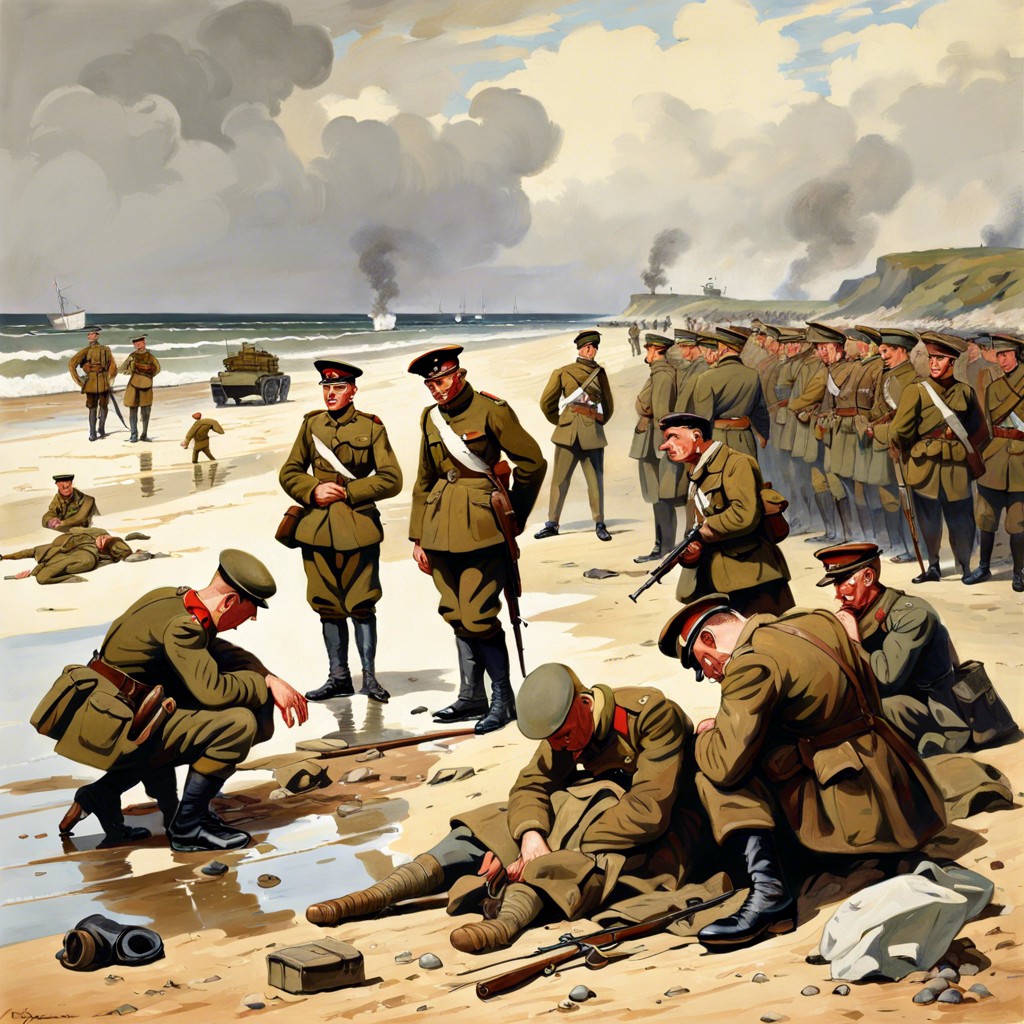Discover how World War II might have changed if Spain had joined the Axis Powers, examining the potential impacts on European and global history.
Imagine Franco’s Spain shaking hands with Hitler and Mussolini under the umbrella of the Axis powers. What chaos would ensue? From Mediterranean naval strategy shake-ups to Spanish Civil War ghosts lurking in military readiness, this alternate history scenario is a rollercoaster. As Spanish boots march on North African soil, how would the economy and society twist and turn? And let’s not forget the diplomatic high jinks with neutral nations eyeballing this Iberian wild card. Buckle up; we’re diving into a whirlwind of fiery possibilities.
Key takeaways:
- Gibraltar becomes Axis fortress, reshaping naval strategies.
- Spain’s military post-Civil War was ill-equipped and divided.
- North Africa campaigns could favor Axis with Spanish support.
- Economy would suffer, shortages and social unrest likely.
- Neutral countries diplomatically challenged by Spain’s Axis allegiance.
Impact On Mediterranean Naval Strategy

Imagine the strategically crucial Rock of Gibraltar suddenly turning into a fortress for Axis forces. Spanish control over this naval chokepoint would have complicated Allied supply routes, effectively bottlenecking access to the Mediterranean.
The British Navy, already tasked with protecting convoys and engaging Axis navies, would face increased pressure. A Spanish alliance could mean more naval bases for Axis submarines and ships, leading to heightened threats along trade routes.
The Italian Navy might have received substantial reinforcements, as Spanish ports could serve as staging areas for operations against Allied positions. This alliance would have demanded significant Allied resources to counterbalance, possibly stretching their naval forces thin.
And let’s not forget those sun-soaked Balearic Islands. They could transform into militarized zones, posing additional logistical nightmares for Allied operations. Spanish coastal artillery and airstrips would add to these complications, making the Mediterranean even more treacherous.
A Spanish Axis membership wouldn’t just tweak the naval chessboard; it would flip it. Allies would’ve needed to rethink their entire Mediterranean strategy, a complex puzzle they certainly didn’t need more pieces to.
Spanish Civil War Aftermath and Military Readiness
Post-civil war Spain was, how to put this delicately, a bit of a mess. Picture a disorganized sock drawer, but with more uniforms and rifles. Franco’s Spain was licking its wounds, rebuilding infrastructure, and dealing with a very vertical learning curve in governance.
- War-Weathered Troops: Spain’s military was battle-hardened but exhausted. Soldiers had plenty of combat experience, but morale was shaky like jelly on a speaker.
- Limited Equipment: Spain wasn’t exactly rolling in surplus tanks and planes. Much of its arsenal was outdated or just plain broken. There’s only so much DIY spirit can do for old weaponry.
- International Isolation: Political aftermath put Spain in the penalty box internationally. Limited alliances meant a trickle of external support, making military readiness akin to preparing for a marathon with a sprained ankle.
- Societal Divides: The civil war left a deeply fractured society. Balancing national unity and internal dissent would have been like taming a herd of rabid cats. Keeping the home front stable while engaging in massive military campaigns would be quite a feat.
Engaging in the Axis powers would have required a herculean effort to mobilize effectively, and Spain might have found itself more participant than key player.
Influence On North Africa Campaigns
The deserts of North Africa would have witnessed a rather dramatic plot twist if Spain had thrown its weight behind the Axis powers. Picture this: the Axis supply lines running more smoothly with Spain’s strategic position assisting in a tighter Mediterranean blockade. Rommel, the formidable Desert Fox, would have likely had an easier time in his campaigns.
Spanish troops, fresh from the Civil War but still rough around the edges, might not have been the game-changers Hitler dreamed of, but they certainly would’ve added a sprinkle of confusion for the Allies. Imagine Winston Churchill’s furrowed brow growing even more furrowed.
Morocco, under Spanish influence, could have become a battleground itself, pulling resources from the Allies’ already stretched logistics. Spain’s bases in the Canary Islands would have provided excellent staging grounds for Axis operations, threatening the Allies’ convoys en route to North Africa.
Tangled alliances, complex supply routes, and more battlegrounds – the North African campaigns would have felt like trying to solve a Rubik’s Cube blindfolded.
Consequences for Spanish Economy and Society
Spain’s economy would have probably taken a plunge faster than a first-time skydiver with a faulty parachute. The country was already reeling from the Spanish Civil War, leaving infrastructure as tattered as a cat’s favorite couch. Joining the Axis would have meant diverting limited resources into a prolonged conflict, putting a chokehold on economic recovery.
Imagine the food shortages – tapas becoming a luxury rather than a staple. The breadlines wouldn’t just be for special occasions; they’d be your daily dose of social interaction. And let’s not forget industry: factories repurposed for war efforts instead of consumer goods, helping to build tanks rather than tools.
Socially, expect a rollercoaster of dissent. The population, tired from war, would be tossed into ongoing strife. Morale would likely sink lower than a sunken battleship. Forced conscription could break families apart faster than you can say “Tierra y libertad.”
Spain would also find itself increasingly isolated. The international community, already giving the side-eye for its fascist tendencies, would now be as welcoming as a porcupine hug. Sanctions would rain down, turning economic winter into a glacial age.
In short, a blend of economic drain, social unrest, and global isolation would follow, leaving Spain in a pretty sticky paella.
Diplomatic Relations With Neutral Countries
Imagine Spain sidling up to join the Axis. Awkward glances all around, right? Diplomatically, it would put neutral countries in quite the pickle. Here’s why:
First, Britain and the USA, who were quite fond of Spain’s geographical positioning, would suddenly see a new threat on their radar. Gibraltar would feel like it’s dining with the enemy.
Second, nations like Portugal—which managed a tightrope walk of neutrality—might find themselves wobbling. They’d have to rethink alliances quicker than you can say sardines on toast.
Third, Spain’s gesture would leave a sour taste for Latin American countries. Those with Spanish roots might be questioning their old-world cousin’s choices and distancing themselves diplomatically.
Lastly, Switzerland and Sweden, our beloved neutral champions, might step up their game in the diplomatic dance. Any whispers of Spain’s favoring the Axis could turn the neutral crowd into the diplomatic equivalent of synchronized swimmers. Panic? Maybe not. But recalibration, definitely.
Spain’s hypothetical pivot would send a flurry of diplomatic telegrams faster than teenagers texting gossip. Bet on it.




